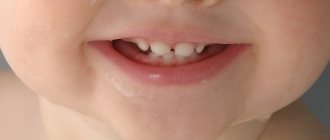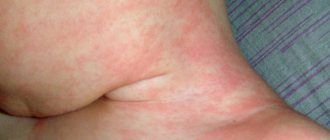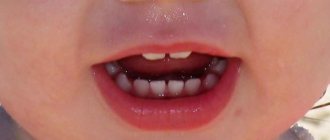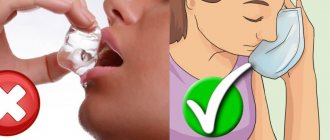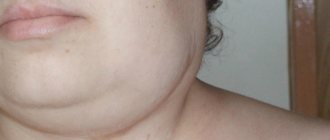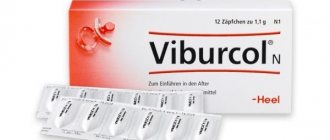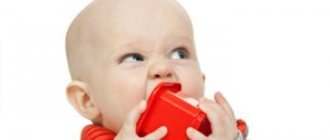Atopic dermatitis and teeth
Posted by Snike989 October 6, 2017
Teething (dentation) is a very difficult period for both the baby and his parents. Not only are the little ones bothered by constantly itchy gums, but the effect is on the entire body as a whole - hence constipation, diarrhea, snot, fever and exacerbation of atopic dermatitis. Moreover, it often sprinkles even those infants who have never been given such a diagnosis. “Accumulative allergies - look for the allergen” - you can hear from a doctor. And mom starts looking...
However, before depriving a child of the nutrients necessary for his growth and development, it would not hurt to find out what other reasons may affect the redness of a toddler’s cheeks.
Calcium deficiency
Many experts associate exacerbations of atopic dermatitis, among other things, with a lack of calcium, which is necessary not only for the formation of bone and dental tissue, nail and hair growth, but also for the thickening of vascular walls.
Due to the fact that most of the calcium the baby receives goes to increase bone tissue, there is often not enough calcium anyway, and then teeth are added. Accordingly, the vascular walls become thinner and their permeability increases. As a result, more toxins and allergens enter the bloodstream, which are released onto the skin through sweat and, upon contact with external irritants, appear in the form of red pimples and spots.
If you look at the instructions for calcium gluconate, you will see among the indications that it is used, among other things, for diseases accompanied by increased permeability of cell membranes (including blood vessels), as well as as an additional remedy in the treatment of allergic diseases and drug allergies .
However, it should be remembered that calcium supplements also have contraindications, which you should familiarize yourself with before giving them to your baby. In addition, to determine calcium deficiency, it is recommended to take a biochemical blood test (calcium, fluorine, vitamin D).
Sweat and drool
Teething is often accompanied by increased sweating and salivation. As mentioned above, toxins and allergens from the body come out of the body with sweat, and saliva is an excellent external irritant.
In addition, with sweat, saliva and snot, the body loses water, and one of the main causes of atopic dermatitis is considered to be dry skin that is unable to retain moisture properly.
Accordingly, during the dental period it is especially important to ensure that the baby does not overheat and receives a sufficient amount of fluid. The skin should be moisturized with emollient as needed, and drool should be blotted with a soft cloth to avoid irritation.
Decreased immunity
It is believed that when teething occurs, not only local, but also general immunity decreases.
Due to reduced immunity, the skin of a baby prone to rashes is easily colonized and infected by pathogenic and opportunistic microorganisms (especially Staphylococcus aureus and Herpes simplex virus), which contribute to the exacerbation of atopic dermatitis.
In addition, the baby, trying to scratch his inflamed gums, pulls into his mouth everything that does not fit well. This contributes to the entry of pathogenic flora into the intestines, which, against the background of reduced immunity, can actively multiply. Proponents of the theory linking atopic dermatitis in infants with dysbiosis believe that this circumstance also contributes to exacerbation.
As a rule, after the next tooth comes out and the immune system returns to its normal state, the body copes with the current situation on its own. You just need to prevent the development of a bacterial infection on the skin.
Enzyme deficiency
There is an assumption that when teething against the background of decreased immunity, the amount of digestive enzymes (substances that break down food) produced by the body decreases, since the body directs all its forces to the eruption of teeth and the fight against gum inflammation.
As a rule, babies eat much less during this period, because appetite is directly proportional to the amount of enzymes produced. However, for breastfed babies, breasts are not just food, but also a source of endorphins and a pain reliever. As a result, there is a possibility of overeating. Undigested food can ferment in the intestines, releasing toxins into the blood (since the protective film of the baby’s intestines is still too thin, and the liver, which should remove excess toxins, is still immature and cannot fully cope with its task). Next, toxins are released through sweat into atopy-prone skin, and under the influence of external irritants, the skin becomes inflamed.
Folk remedies
It is believed that amber helps with teething. In the old days, amber beads were specially hung around the neck of children. As you know, succinic acid helps treat many ailments, including relieving pain in the gums.
You can relieve pain with soothing tea. Take a pinch of dry chamomile, lavender, lemon balm, and catnip. Pour a glass of hot water, let it brew for 15-20 minutes. After this, strain. Give your child this infusion in any quantity.
Clove oil is an excellent pain reliever. It must be diluted in a 1.5:1 ratio with almond or olive oil and gently rubbed into the gums several times a day.
To the question: Can poor appetite in a child be associated with teething? asked by the author Lima
the best answer is Yes, quite. My children still had loose stools and a runny nose, the doctor diagnosed an acute respiratory infection, their immunity decreased at this time, they did not treat it, everything returned to normal on its own. She lubricated her gums with a cooling gel, very rarely, and let her chew on an apple, a bagel, or a cracker, depending on how old she was.
Answer from Zinaida Oleynikova
[guru] Yes, of course, their gums hurt, and there are many factors...
Reply from Midori
[guru] 100% can.
Reply from K_dasha
[active] 1. First (medial) lower incisors - 6-9 months. 2. First (medial) upper incisors - 7-10 months. 3. Second (lateral) upper incisors - 9-12 months. 4. Second (lateral) lower incisors - 9-12 months. 5. First upper molars - 12-18 months. 6. First lower molars - 13-19 months. 7. Upper canines - 16-20 months. 8. Lower canines - 17-22 months. 9. Second lower molars - 20-33 months. 10. Second upper molars - 24-36 months. Teething usually begins closer to six months; on average, by the age of one year, the baby has 8 incisors, and the eruption of all 20 milk teeth should be completed by 2.5-3 years. However, the timing of teething can vary greatly - they depend on heredity, the health of the mother during pregnancy, the nutrition of the infant, and some diseases, in particular rickets. Therefore, the age intervals given here are very approximate. The order in which teeth erupt is more important than the timing of their appearance. Teething can cause discomfort for your baby. Some children during this period begin to sleep poorly at night, become restless during the day, the temperature may rise to 38-38.5 C, and bowel movements may occur. Helps: * more frequent breastfeeding; * special gels that are applied to the gums to relieve pain; * teething toys, chilled in the refrigerator, or any safe objects and toys that the child likes to chew. Caution: Teething should not cause high fever, diarrhea, vomiting, complete loss of appetite, cramps or choking. If you experience these symptoms, even if you think they are related to your teeth, consult your doctor. It is also not recommended to give a child antipyretic and analgesic drugs (syrup, suppositories) without consulting a doctor and when the body temperature is below 38.5 C. When teeth appear, you need to start caring for them. A child up to 1-1.5 years old can brush his teeth once a day with a special soft plastic brush (put on the mother’s finger). In this case, it is convenient to sit the baby on your lap, with his back to you. For an older child, you can buy the first children's toothbrush of a comfortable size, with durable bristles. At this age, children imitate adults with pleasure, and the ritual of morning and evening brushing of teeth is easily established. It is clear that the baby is still playing with brushing his teeth, and while the mother is brushing them - it is most convenient to stand behind the baby in front of the mirror. From the age of two, you can teach your child to rinse his mouth with water (it would be good to do this every time after eating) and use children's toothpaste. You may have to try several brands of toothpaste before your baby is satisfied with the new taste. Other measures to prevent caries (baby teeth are more fragile than permanent teeth and are affected in a shorter time!) include monitoring the amount of sweets in the child’s diet and avoiding sweet drinks (juices, sweet water) at night and at night. The child should be shown to the dentist for the first time when he or she is 2-3 years old. However, if you are worried about something - irregular teething, darkening of the tooth, stains on it, bad breath - consult a doctor as soon as possible. The health of baby teeth is the key to the proper formation and health of permanent teeth.
Reply from Anastasia...
[guru] maybe my daughter’s appetite is spoiled for a week for every tooth.
The process of teething occurs individually for each child. Some parents carefreely rejoice at each new tooth, while others have to deal with a whole bunch of problems, in particular with diarrhea and vomiting in the baby. Very often these symptoms are combined with elevated body temperature. What is the reason for the body’s response to the natural process of teeth formation, and how can we help the baby cope with this test?
Can there be diathesis during teething (Komarovsky)
In this publication, you are given the opportunity to find out whether diathesis can occur during teething in children. We have also published what Dr. Komarovsky thinks about this.
At the age of six months, the baby usually begins to cut its first primary incisors. This process is accompanied by rather unpleasant symptoms: diarrhea, runny nose, fever. But it also happens that the baby begins to worry about diathesis during teething.
Many parents have questions about why this happens and how to deal with the problem. Children's doctor Komarovsky gives answers to these and many other questions.
Can there be diathesis on teeth?
During the period when the baby begins to cut teeth, an exacerbation of chronic diseases is possible. Doctor Komarovsky warns young parents about this. If you are worried about atopic dermatitis in a child, then it is quite possible that with the growth of the first incisors, the development of allergies cannot be ruled out.
Diathesis during the eruption of primary or molar processes sometimes covers the baby’s cheeks with a rash. Many parents, communicating on forums dedicated to children's health problems, often raise this issue. Young mothers complain that their children have an allergic reaction when teething.
As each primary incisor grows, infants develop skin rashes, and after the appearance of a new tooth, the skin rash goes away. In this connection, parents are concerned whether diathesis could be a reaction to teeth.
Some doctors claim that there is no and cannot be a connection between the growth of incisors and the rash. But this is far from true. According to doctors, this phenomenon is quite possible, especially in children prone to allergies.
And by clicking on this link you will learn about Papillock plus https://helsbaby.ru/papillock-kupit-v-apteke-obman-cena-sostav-i-otzyvy-o-papilok.html, because Papillock is also a great help in getting rid of papilok -viral infection.
Diathesis during teething: Komarovsky
The developing body requires calcium; if it is not enough, it will negatively affect the baby’s health. Komarovsky claims that calcium deficiency increases the allergic reaction when the baby is teething.
The problem can be solved by using calcium gluconate during teething. The product must be crushed and added to milk or baby food. But before starting treatment, you need to consult a pediatrician. Your doctor may prescribe you to take vitamin D, which helps with calcium absorption.
Tips and tricks
If your baby's cheeks are covered with a rash or itching bothers you, you should consult a pediatrician for advice.
In order not to aggravate the course of the disease, during the period of the appearance of the first incisors, you need to:
- take antihistamines; your pediatrician will help you choose a medicine;
- treat the skin with ointments, creams, lotions with antihistamine action to eliminate itching and eliminate the rash;
- Most likely, the baby does not have enough calcium; after consultation with a specialist, the child is given an additional dose of this substance;
- it is important to strictly monitor nutrition, new complementary foods should not be introduced, foods that cause allergies should also not be present in the child’s diet;
- The baby should spend more time in the fresh air; the sun's rays will promote the production of vitamin D.
The growth of the first primary incisors may be accompanied by skin rashes. But before connecting these two phenomena, it is important to make sure that such a reaction did not occur due to eating allergenic foods.
Sources used: helsbaby.ru
SEE ALSO: Sanatoriums for patients with atopic dermatitis Is dermatitis dangerous for others
Doctor Komarovsky about teething in children (video)
The appearance of teeth in children is a difficult period for the whole family. That is why the main task of caring parents and the main recommendation of all leading experts is to be patient and accept the situation as it is. Remember that a child, surrounded by attention and care, endures such a difficult period for him much easier and painlessly.
We suggest you familiarize yourself with: Treatment of caries on the front teeth, caries of the front teeth (photo)
The first teeth begin to slowly emerge from the gums around 3-4 months. But this does not mean that the tooth should come out immediately - the timing of teething can vary greatly. The surest sign that a tooth is about to appear is excessive (due to irritation of the nerve endings) secretion of saliva. The child becomes more restless, he often cries, wakes up at night in pain, gets nervous, and the baby loses his appetite.
Help with digestive disorders
In order to help the baby during this difficult period for him, you can take some measures, depending on the symptoms.
To alleviate and eliminate intestinal disorders such as diarrhea, the following recommendations must be followed:
- Put your baby to your breast more often and make sure your baby drinks enough water.
- Eliminate the following foods from your baby’s menu:
- meat;
- fatty foods;
- milk and fermented milk products;
- juices and fresh fruits (bananas are allowed).
- Include in your diet rice and a decoction based on it, mashed potatoes, baked apples, fresh bananas, crackers and dryers, dried pear compote, jelly, strong tea (of course, in small quantities).
- Consult your pediatrician about using Regidron. This product perfectly replenishes fluid levels in the body.
If your baby is vomiting, drinking plenty of fluids is also necessary.
Among medications, the pediatrician may recommend taking the already mentioned Regidron and Smecta. An excellent folk remedy is raisin decoction. It is recommended to feed the child well-ground foods (for example, purees), and also to slightly cool both the food itself and the feeding spoon.
To lower body temperature, you should give your baby antipyretics as needed - Nurofen, Children's Paracetamol and others.
Leading experts in the field of pediatrics recommend that parents, during the period of teething, remain calm and monitor the well-being of their child. Unfortunately, this process is very hectic and causes pain for the child. All that caring mothers and fathers can do is to show the baby to the local pediatrician and adhere to his recommendations aimed at smoothing out the symptoms.
How to make teething easier for your baby
What to do when a child is teething? Every young mother faces this question. It is not possible to completely eliminate the symptoms, but it is possible and necessary to make the baby feel better.
First, buy a teether at the pharmacy. Make sure the product is certified. Try not to buy teethers in a regular store and do not choose the cheapest option. They can be fragile and contain dyes that cause allergic reactions. If the product is of high quality, you can safely buy bright colors; children pay more attention to them. Inside each teether there is a gel or liquid that has a cooling effect. It’s better to buy several “rodents” at once so that you can change them and cool them in the freezer.
Pacifiers also do a good job of meeting your baby's chewing needs.
Do not forget that sucking and chewing objects of irregular shape can lead to malocclusion. Therefore, choose latex or silicone pacifiers with a special orthodontic shape. Don’t forget to disinfect all toys, pacifiers and teethers on time.
Massaging the gums also helps soothe your baby and cleans the mouth. Use a finger brush or gauze pad soaked in cold water. Just don’t overdo it - the massage should last no more than 5 minutes, and the movements should be neat and gentle.
But if the pain is very severe and the child cannot be calmed in any way, use more effective and fast-acting medications. Before using them, carefully read the instructions to exclude components that may cause allergies and consult your pediatrician.
So, what drugs relieve pain?
The most common medications are dental gels and ointments that are applied to the baby’s gums. In addition, pediatricians recommend suppositories and syrups. They are absolutely safe, but only if you are not allergic to the components. Therefore, read the ingredients carefully to avoid any unpleasant surprises.
It should be noted that these drugs do not affect the process of teething. They only make this process easier. All proposed products are clinically tested and, when used correctly, do not cause side effects. However, be sure to consult your doctor before use!
Nurofen for teething
Nurofen is a very effective remedy, doctors say. However, the dosage of the drug must be strictly observed. The syrup should be given to the child no more than 3-4 times a day with an interval of 6 hours. Regarding suppositories - 1-2 suppositories per day. Course – from 3 to 5 days. Use the drug in cases of emergency.
In addition to ibuprofen, the suspension contains the following elements: maltitol syrup (sweetener), domiphen bromide (antiseptic), water and citric acid. Although these components are harmless, it is better to use candles for a 3-month-old baby. They have no fragrances or flavoring additives.
A contraindication to the use of the drug is sensitivity to ibuprofen. Also, Nurofen should not be combined with:
- acetylsalicylic acid;
- other antipyretic and painkillers;
- thrombolytic drugs;
- anticoagulants;
- antihypertensive drugs;
- diuretics;
- glucocorticosteroids;
- cardiac glycosides;
- quinolone antibiotics.
Reviews from parents on websites and forums are 90% positive, so the overall rating is 4.5 out of 5.
Baby Doctor "First Teeth"
Baby Doctor “First Teeth” is a homeopathic gel produced by a company from Israel. Thanks to the natural ingredients in the composition, it is approved for babies from 3 months. This is a great advantage, because often gels cannot be used for babies under six months of age.
Apply the gel in a thin layer to red, swollen gums with clean hands or a gauze pad after eating. To consolidate the effect, do not let your baby drink for at least half an hour.
Regarding the effectiveness of Baby Doctor, reviews from mothers on the forums are divided. Most note that children calm down within a couple of minutes after applying Baby Doctor. In addition, their well-being, mood, and appetite improve. But when compared with drugs based on lidocaine, of course, this gel is not as effective. And it doesn't help everyone. Sometimes mothers claim that they did not notice any relief at all. Whether it is worth buying the drug is up to you and your pediatrician to decide, but we give the smallest babies a rating of 5 for its naturalness, quality and ease of use.
Calgel for teething
Kalgel is used only during teething. By the way, this drug is also recommended for adults with the appearance of wisdom teeth. The drug only numbs the area where it is applied. It cannot be used for prevention, only for pain relief. The active substance of the drug is lidocaine hydrochloride. The dosage is small, so it only acts on the gums and has no effect on the body. Additional components include an antiseptic that neutralizes germs, fungi and bacteria. The remaining components are various flavoring additives, preservatives and other “ballast substances” that help keep the active substance in “working condition”. Do not be afraid of the composition, because the medicine has been tested and has positive reviews from both mothers and doctors.
The drug can be used no more than 6 times per day. If parents or their relatives have intolerance to lidocaine, this drug will not suit your baby.
Kalgel is incompatible with soap and lauryl sulfate, which is added to shampoos and gels. Therefore, the baby’s gums need to be smeared after bathing or 1 hour before the start of water procedures. There will be no consequences, just a soap solution will make the gel useless.
Reviews on websites and forums about the drug are mixed. Some parents are delighted with the use of Kalgel, others believe that they have thrown money down the drain. But still, the drug works and is very good, so it gets a rating of 4.
Viburkol for teething
Vibrukol is an absolutely harmless drug made in Germany, approved for babies from the first days of life. This drug has a special place in the medicine cabinets of many mothers, because it is safe and hypoallergenic. The thing is that Vibrukol contains 5 medicinal herbs: chamomile, bittersweet nightshade, belladonna, meadow lumbago, plantain. The auxiliary substance included in the composition is lime carbonate, which contains calcium and helps to compensate for its deficiency in the body, thereby strengthening the teeth.
Viburcol should be used as prescribed by a doctor, the period of use is from 2 to 14 days. The dose for babies under 6 months should not exceed 2 suppositories per day. When teeth are cut at 2–3 months, use 1/4 of the suppository no more than 4 times a day.
Parents on the forums speak mostly positively about this drug and, given its safety, it earned all 5 points.
Dantinorm Baby for teething
Dantinorm Baby is a homeopathic medicine, without side effects and age restrictions. The main components are medicinal herbs:
- chamomile (soothes and reduces fever)
- Indian ivy (helps with pain and swelling of gums)
- rhubarb (to improve digestion)
The drops are very easy to use. One sterile package – one dose. You can give your baby the drug at home or while walking. There is no contact with hands, so germs and bacteria will not enter the baby’s body, as is the case with poorly washed hands.
The solution is used in one dose 2-3 times for 3 days. If at the end of the three-day period you do not notice any improvement, then you should consult a doctor.
Most of the reviews are positive, so we give the overall rating 5.
Dentokind for teething
Dentokind is a homeopathic remedy used for pain associated with teething in infants. Babies under 1 year of age are prescribed 1 tablet every hour. The tablet is dissolved in water and given to the child to drink. The maximum dose is up to 6 tablets per day. After the condition improves, the dose is reduced to 3 tablets per day. Children from 1 to 6 years old: 2 tablets every hour, but not more than 12 tablets per day. Then the dose is also halved - 2 tablets once a day. For a good effect, the tablet must be dissolved in the mouth. It is prohibited to take the drug for more than 14 days without consulting a doctor!
The drug has no side effects, but check the composition for the possibility of an allergy to any of the components.
So far there are not many reviews about the drug, but all are positive. We decided not to rush and limit ourselves to a rating of 4.5 points.
Pansoral first teeth
Pansoral first teeth is a gel whose active ingredients are chamomile flowers, saffron and marshmallow root. Herbal components soothe the mucous membrane, helping the baby endure this difficult period less painfully.
The gel is applied to the swollen areas of the gums with massaging movements. Pansoral is often used to massage gums during teething. But the gel should be used only when pain occurs; it is not necessary to use it for prevention. The drug can be applied 3-4 times a day. Course – 3-4 days.
The drug has no side effects. Can be used with other medications.
On forums, young mothers often recommend this drug. The rating for Pansoral is 5.
Cholisal for teething
Cholisal is a dental gel, after application it is not washed off with saliva for a long time and penetrates deep into the tissues to the nerve endings, so after 2-3 minutes the baby feels relief and calms down.
The active ingredients of the gel are choline salicylate and tsetalkonium. The first is pain relief, slightly lowers the temperature, and relieves inflammation. The second is an antimicrobial, antibacterial substance.
Cholisal is indeed a very effective drug, this is confirmed by reviews from parents and recommendations from doctors. The downside of the drug is that it can be used on babies older than one year. But the first teeth begin to cut much earlier. Overall score – 4 points.

